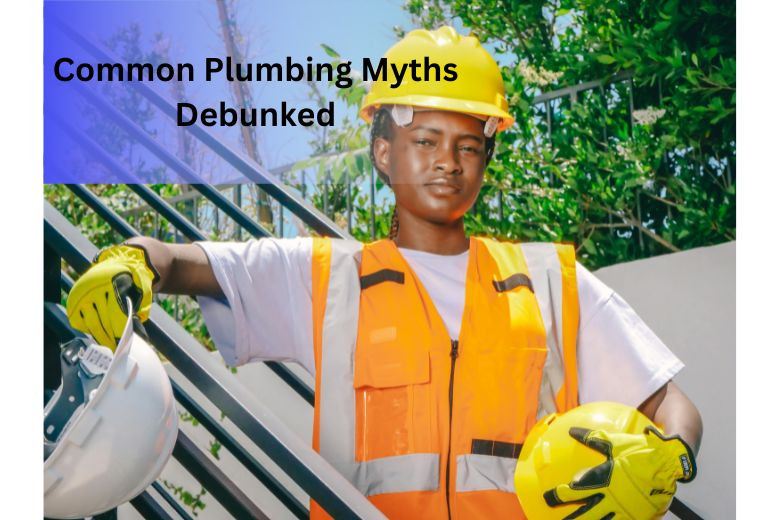Common Plumbing Myths Debunked
Posted on August 02, 2024 by Admin

Common Plumbing Myths Debunked
Plumbing is a key part of ensuring that a home remains functional and safe, but many myths have been associated with it. Knowing the facts from fiction about common plumbing myths allows property owners to make proper decisions and avoid costly blunders. Here are some of the most common plumbing myths and the truth that debunks them.
Must Read : The Importance of Water Filtration Systems for Your Home
Flushing Anything That Isn't Paper is Okay
Myth: People think it's acceptable to flush things other than paper, such as wipes, dental floss, or paper towels, as long as they're not used too much.
Fact: Flushing anything but toilet paper can make your plumbing system clog. Things like wet tissues and floss do not decompose like toilet paper, so it's very simple for them to get stuck in the pipes and clog them. This can lead to further, more expensive repairs. Better in the garbage than in your plumbing system.
All Drain Cleaners Are Safe for Pipes
Urban Legend: Homeowners believe that all chemical drain cleaners are safer ways of unclogging drains.
Fact: Chemical drain cleaners can be annoying on pipes and do more harm than good. Yes, they can dissolve a few clogs, but the chemicals can corrode the pipes over time and create leaks. It's better to use a plunger or seek help from professionals for persistent irritation and to avoid causing any negative impact on the plumbing system.
A Dripping Faucet is Not a Big Deal
Myth: A dripping faucet is considered by many as not really a big deal and not requiring quick repair.
Fact: Wasting water can cause high utility bills. Over time, even a small drip can add up to gallons of wasted water. Besides, the running water, the drip of the tap leads to the destruction of the fixtures and even emergence of some severe leakages when not acted upon at a quicker pace. This is generally a simple repair job where the elements of the faucet are replaced or repaired to avoid straining water and other problems thereafter.
Must Read : The Role of Electrical Inspections in Home Safety and Maintenance
Any Plumbing Problem Can Be Solved with DIY Solutions
Myth: It is often considered that every plumbing problem can be easily handled with the help of do-it-yourself solutions and equipment.
You are able to fix some small plumbing issues if you have the right set of tools and some basic knowledge of the subject. But complicated issues require professional help. Any attempt to solve plumbing issues, much less serious ones, without the experience will create further damage and be costly in the end with serious repair. For more major issues involving pipe bursts, sewer line issues, or complex installations, it is prudent to call a licensed plumber for a reliable and long-term solution.
All Plumbing Pipes Are the Same
Myth: Some homeowners believe that all plumbing pipes are the same, and it wouldn't mind replacing them with another.
Pipes for plumbing exist in several materials; for instance, PVC, copper, and PEX all have different properties and usages. An example is that the copper pipes are very strong, non-corrosive, and can be used in most pressure applications. On the other hand, the PVC pipes are lightweight and for drainage. If the wrong kind of pipe is used for a particular application, it can result in leaks or even complete failure in the system, meaning that you're expected to make the right choice regarding the pipe material for each part of your system to ensure proper function and longevity.
Faqs
-
1. How can I avoid plumbing blockages?
There are a number of ways that one can avoid plumbing blockages, like not flushing non-solvable culprits down the gullet. This includes material such as discarded wipes or paper towels, into the system. Use drain screens or hair traps in showers and tubs to trap hair and other debris, and avoid pouring grease down the drain. Clean drains routinely and consider using a natural enzyme cleaner to keep pipes free-flowing. If problems persist, call in a professional plumber for advice.
-
2. What are some of the plumbing issues that I can take care of by myself?
I can handle minor issues, such as replacing a faucet washer or plunging a sink, and so can most other homeowners. However, more serious issues, like a burst pipe, tough clogs, or hot water heater problems, should be looked after by a competent and licensed plumber. Trying to accomplish such complex repairs with little knowledge can actually cause more damage and increased repair expenses.
-
3. How often should I have my plumbing system checked?
It's good to have your plumbing system regularly checked yearly by a professional plumber. Periodic checks, in most cases, help to detect those pending issues that could turn into big problems, such as leakages, clogging, or pipe corrosion. Not only does regular maintenance help improve the life of your plumbing system, but also helps avoid costly repairs.
Recent Post
- Top Plumbing Service Providers in Arizona, USA
- Top 10 Electrician Service Providers in Alabama, USA
- Top 20 Roof Repair Service Providers in Alabama, USA
- The Role of Roof Insulation in Energy Efficiency: Tips and Tricks
- Understanding Roof Damage from Wildlife and How to Prevent It
- How to Choose the Best Roofing Contractor for Emergency Repairs
- Roofing Maintenance for Historic Homes: Preserving Architectural Integrity
- The Importance of Proper Attic Ventilation for Roof Health
- How to Identify and Prevent Roof Mold and Mildew
- The Best Practices for Removing Snow from Your Roof